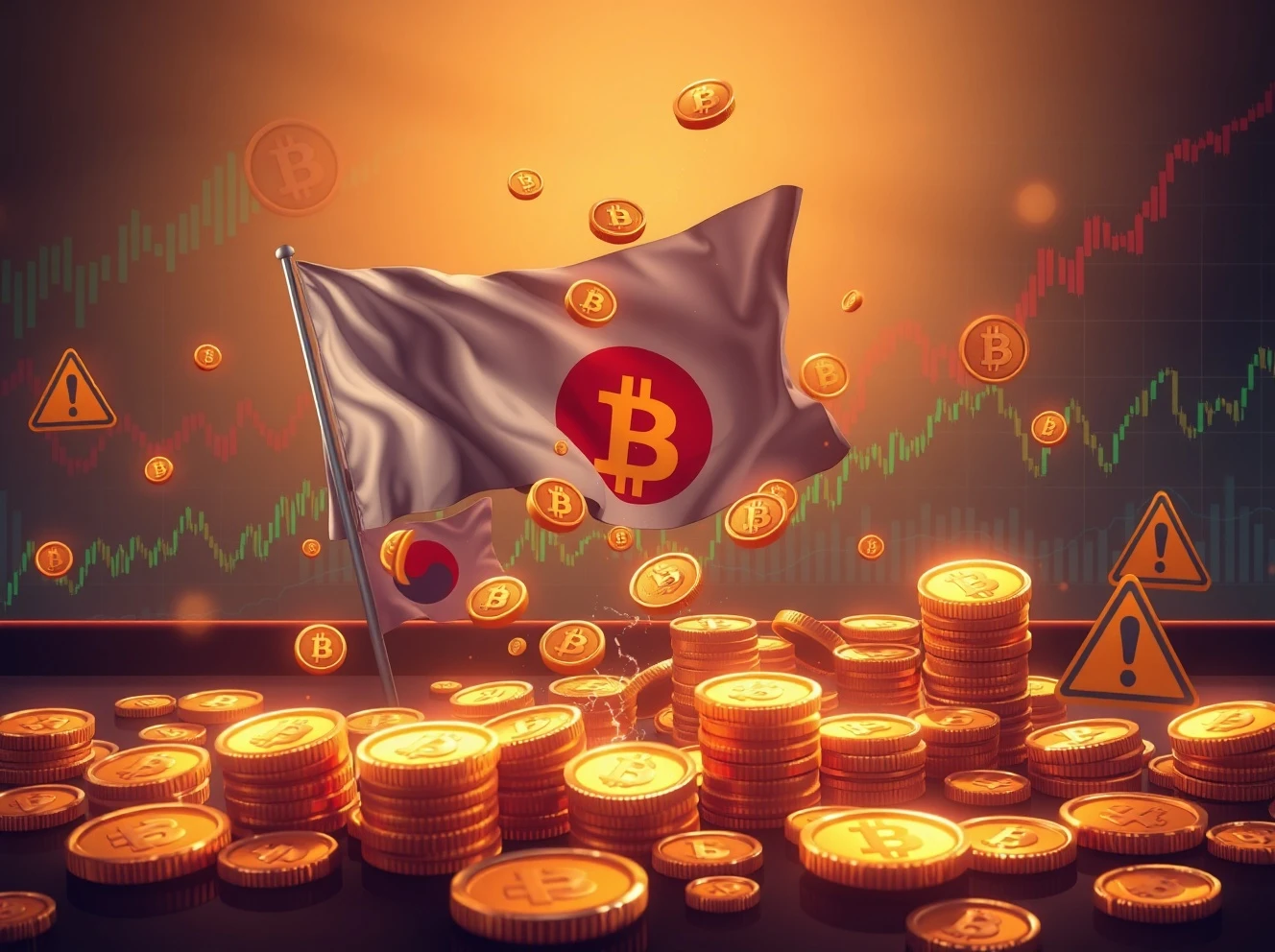South Korean authorities have uncovered a staggering financial scandal where crypto arbitrage schemes dominated 80% of the country’s $9.8 billion illegal foreign exchange transactions over five years. This alarming revelation exposes how sophisticated traders exploited market inefficiencies to bypass financial regulations.
Understanding the Kimchi Premium Exploitation
The crypto arbitrage strategy primarily exploits what’s known as the “Kimchi premium.” This phenomenon occurs when cryptocurrency prices on South Korean exchanges significantly exceed international market rates. Consequently, traders identify profitable opportunities through price disparities.
How Crypto Arbitrage Works in Practice
- Purchase Phase: Traders buy cryptocurrencies on international exchanges at lower prices
- Transfer Phase: They move assets to South Korean platforms where prices are higher
- Conversion Phase: Illicit foreign exchange transactions complete the profit cycle
The Staggering Scale of Illegal Crypto Arbitrage
Recent data from the South Korean Customs Service reveals shocking statistics. Authorities detected 961 illegal forex cases totaling $9.84 billion. Importantly, crypto arbitrage schemes accounted for 81% of unregistered money services value. Furthermore, cryptocurrency-related crimes represented 73% of all illicit forex dealings.
Key Statistics Breakdown
- Total illegal forex transactions: $9.84 billion over five years
- Crypto-related unregistered services: $6.26 billion (81% of value)
- Overall crypto forex crimes: $6.88 billion (73% of total)
Why South Korea Faces Crypto Arbitrage Challenges
Several factors make South Korea particularly vulnerable to crypto arbitrage exploitation. The country experiences high retail cryptocurrency demand combined with strict capital controls. Additionally, regulatory frameworks struggle to keep pace with rapidly evolving digital asset innovations.
Contributing Market Conditions
- Exceptionally high retail investor interest in cryptocurrencies
- Restrictive capital controls limiting official money movement
- Limited fiat on-ramps and off-ramps for international exchanges
- Regulatory gaps in cryptocurrency oversight and monitoring
Regulatory Challenges in Combating Crypto Arbitrage
South Korean authorities face significant obstacles in addressing crypto arbitrage crimes. The cross-border nature of cryptocurrency transactions complicates enforcement efforts. Moreover, illicit actors constantly adapt their methods to evade detection.
Enforcement Difficulties
- International jurisdiction complexities across multiple countries
- Evolving tactics used by sophisticated financial criminals
- Technological challenges in tracking blockchain transactions
- Coordination requirements between multiple regulatory agencies
Future Implications for Crypto Regulation
These findings will likely intensify regulatory scrutiny on cryptocurrency markets. South Korean authorities are expected to implement stricter monitoring measures. Additionally, financial institutions may face enhanced reporting requirements for suspicious transactions.
Expected Regulatory Responses
- Strengthened enforcement of existing financial regulations
- Enhanced transaction monitoring capabilities for exchanges
- Increased international cooperation on cross-border investigations
- Improved investor education about regulatory compliance risks
Conclusion: The Ongoing Battle Against Illicit Finance
The massive scale of crypto arbitrage involvement in South Korea’s illegal forex deals highlights persistent challenges in digital asset regulation. As cryptocurrency adoption grows globally, robust regulatory frameworks become increasingly crucial. Ultimately, effective enforcement requires international cooperation and technological adaptation.
Frequently Asked Questions (FAQs)
Q1: What exactly is the Kimchi premium in cryptocurrency trading?
A1: The Kimchi premium describes the significant price difference between cryptocurrencies on South Korean exchanges versus international platforms. This disparity creates arbitrage opportunities that traders exploit for profit.
Q2: How does crypto arbitrage lead to illegal foreign exchange transactions?
A2: While crypto arbitrage itself isn’t illegal, the process requires converting profits between currencies. When these conversions bypass official channels to avoid capital controls or taxes, they become illegal forex transactions.
Q3: What was the total value of crypto-related illegal forex deals in South Korea?
A3: Authorities uncovered approximately $6.88 billion in cryptocurrency-related illegal foreign exchange transactions over five years, representing 73% of all illicit forex dealings during that period.
Q4: Why is South Korea particularly vulnerable to these schemes?
A4: South Korea’s combination of high cryptocurrency demand, strict capital controls, and regulatory gaps creates ideal conditions for illicit arbitrage activities to flourish.
Q5: What measures are regulators taking to combat these crimes?
A5: South Korean authorities are enhancing monitoring capabilities, strengthening enforcement, and improving international cooperation to detect and prevent crypto-related financial crimes.
Q6: How might this affect legitimate cryptocurrency investors?
A6: Legitimate investors may face increased compliance requirements and enhanced scrutiny from exchanges and financial institutions as regulators implement stronger anti-money laundering measures.








